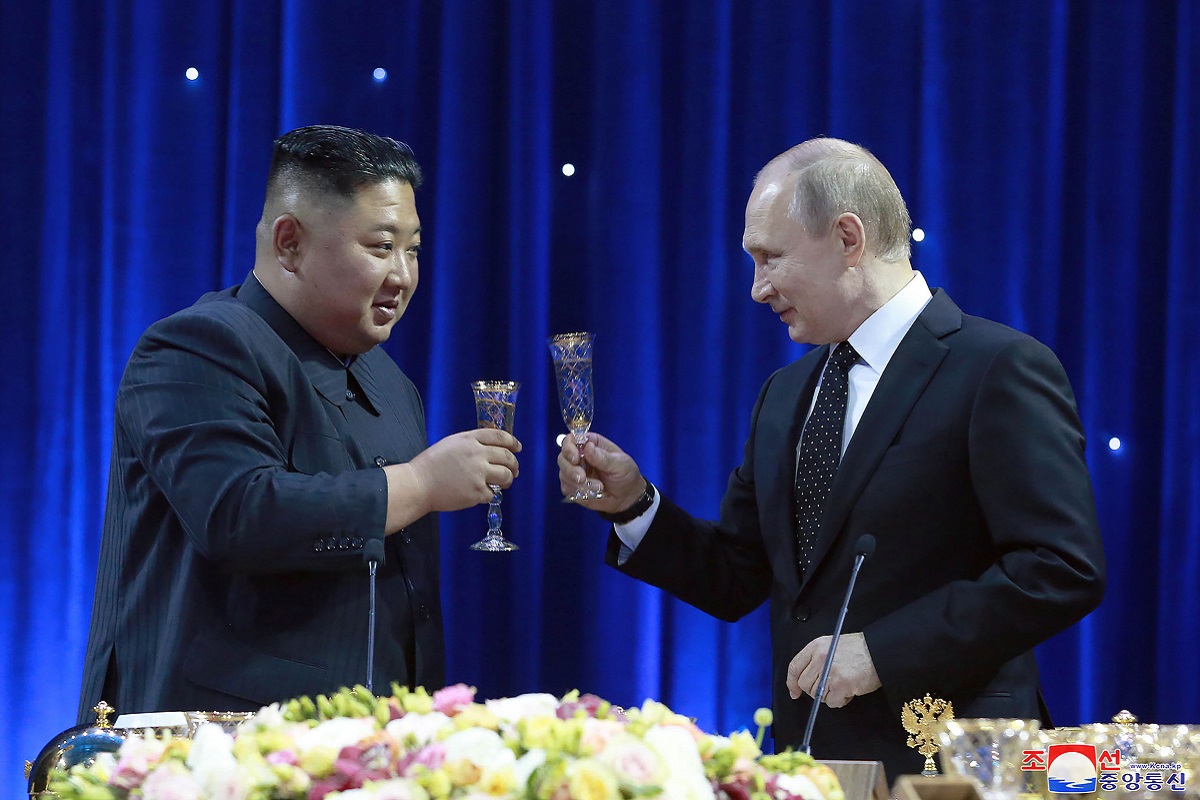In the intricacies of geopolitics, the recent develop- ments in Russia’s relationship with North Korea raise eyebrows and prompt questions about the motiva- tions behind this seemingly strategic alliance. The Kremlin’s assertion that ties are flourishing in all areas, including “sensitive” ones, fuels speculation and invites scrutiny from global observers. The timing of these developments is noteworthy. As tensions between Rus- sia and the West escalate over the conflict in Ukraine, President Vladimir Putin appears to have found an unlikely partner in North Korea. Russia’s courting of North Korean leader Kim Jong Un and the deepening of ties between Moscow and Pyongyang present a com- plex geopolitical manoeuvre. The historical context of the Russia-North Korea relationship cannot be over- looked. Formed in 1948 with the backing of the Soviet Union, the country’s recent emphasis on military ties underscores a revival of this historical connection. However, it’s the expansion into “sensitive” areas that piques interest and raises concerns. What lies beneath the surface of these diplomatic exchanges, and what is the true extent of collaboration in those sensitive domains? The statement from Kremlin spokesman Dmitry Peskov highlights the importance of North Korea as a partner. The phrase “including in sensitive areas” is deliberately vague, leaving room for interpre- tation and speculation. Could this involve shared intel- ligence, technology transfer, or even collaboration on nuclear capabilities? The lack of transparency fuels uncertainty and adds a layer of intrigue to this geopo- litical tango.
The international community has not been shy in expressing reservations about Pyongyang’s involvement in the conflict in Ukraine. The accusations of signifi- cant North Korean missile deliveries to aid Russia’s war effort are met with staunch denial from both nations. Moscow’s dismissal, asserting its right to form partner- ships as it sees fit, adds a defiant tone to the narrative. For Mr Putin, the North Korean card serves multiple purposes. As he frames Russia’s stance in an “existential battle” with the West over Ukraine, aligning with Mr Kim allows him to needle Washington and its Asian allies. It is a strategic move to assert influence in a region where traditional alliances have been tested. The optics of President Putin being invited by President Kim Jong Un to visit North Korea are significant. It’s a sym- bolic gesture that strengthens Russia’s position on the global stage, presenting an alternative narrative to the Western-dominated discourse. While the world watch- es the Ukraine conflict unfold, the Russia-North Korea alliance adds a layer of complexity to the geopolitical landscape. The evolving ties between Moscow and Pyongyang also have implications for regional stability. The Korean peninsula has long been a flashpoint, and any shift in alliances or power dynamics can have far- reaching consequences. The world must carefully mon- itor these developments and engage in diplomatic efforts to ensure that the pursuit of bilateral interests does not compromise global peace and security.
Advertisement
